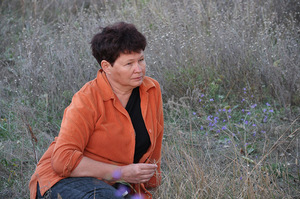Conversation about French literature - between the classics and variegated ephemeral butterflies 6
In brief: March, throughout the world is known as a month of Francophony. French culture has been pulling and attracting Lithuanians since the interwar period, when Kaunas - the Provisional Capital - was developing and had an ambition of becoming little Paris. We invited translator Jonė Ramunytė to talk about France from the Lithuanian perspective. She has been translating French literature into Lithuanian language for over two decades and is a true Francophone.
I wanted to know what French culture means to the translator personally, since her work, in addition to language, requires the knowledge of culture. Jonė Ramunytė says, "Yes, in fact I was growing up surrounded by French literature (and not only literature). My mother Ramutė Ramunienė, in addition to translating French literature, taught French in Vilnius University. I remember, even during the times of the iron curtain, our house was often visited by French guests and together with them - the French aura. Otherwise, Francophony and the French spirit reaches my translator's being through literature, books and sources of information. But to enjoy the real French spirit, or become a part of it, I have to visit France and for me it is the International Translators' College of Arles (CITL); when I visit my French friends."
I was wondering what genre is the most difficult to translate for the translator. According to Jonė Ramunytė it is a difficult question, "Of course, let's say, the language of the 19th century or earlier authors is much more complex than the later ones. But then again - it depends on the author. I find it difficult to translate deceptively simple authors. For example, Patrick Modiano. His language seems very simple - the structure of the sentences and no pretentiousness - but at the same time very beautiful, of a crystal-like sound, sometimes it can be read like poetry. Therefore, that sound is very difficult and am not sure if at all possible to convey with Lithuanian language."
Jonė Ramunytė also translates children's literature. I asked what her thoughts were on the French literature for the young reader. Translator says that almost all of the books for children that she has translated, she offered herself. "Children's literature has another problem - publishing house needs to be convinced to publish a French author's book for children. Some of them do not want to do it saying that children's literature is not profitable and others also have their own considerations and priorities. In addition, English-speaking, German and Scandinavian authors who write for children are traditionally more valued in Lithuania. Therefore, lately I have abandoned this genre, which is a bit unfortunate, because I am really fond of youth's literature," explains Jonė Ramunytė.

